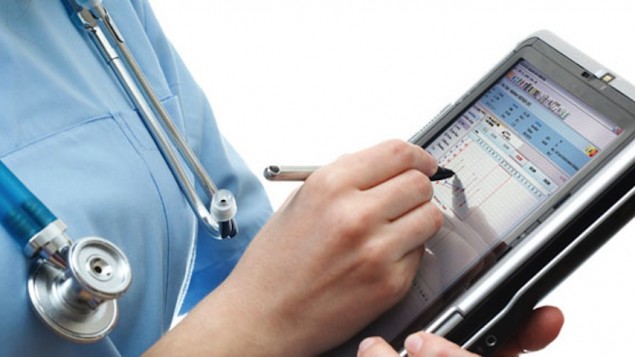Expert: US Could Emulate Israel Health Management

By David Shamah, for
The Times of Israel
In a recent ranking of countries with the most efficient health care systems, Israel ranked close to the top of the list. It snagged the number four slot, far ahead of the United States, which came in at number 46.
The results might suggest that the United States could learn a thing or two from Israel, and US health expert Delia Vetter agrees. "I've talked to many people on my visit here," Vetter said on the sidelines of the recent mHealth Israel Conference in Tel Aviv. "People like the system here, and they say they get great service. Not that many people in the US say that."
As senior director of Benefits and Programs for US computer company EMC, Vetter is responsible for ensuring that thousands of EMC employees and family members are able to access health care. "We service 25,000 employees, and manage health care expenditures," essentially acting as an insurance provider for employees and their families and negotiating with insurance companies for appropriate plans, she said.
The mHealth Israel Conference - the m stands for "mobile" - brought together health professionals, entrepreneurs, data experts, and others involved in the movement toward digitizing health records, distance medicine, and other innovations in health care that are part of the digital revolution.
Vetter was at the conference in order to share information with Israeli companies and health funds on a number of issues, especially electronic records and data analytics - areas, she says, Israel excels in. "One of the big advantages in the system here is that each patient has an electronic record that travels with them between doctors, clinics, and hospitals. That's an objective the US is slowly but surely trying to implement as well, because it makes so much economic sense."
Over the past few years, the United States has been encouraging doctors, hospitals, and health maintenance organizations to adopt electronic records for their patients. Besides saving money on record-keeping in the long term (though the startup costs for an electronic system can be high), electronic health records, which can be transmitted automatically between a doctor's office and a hospital, or even to an ambulance or a doctor in the field, can save lives. By enabling caregivers to have immediate and up-to-date access about a patient's health status and history, more efficient treatment can be provided, answering crucial questions, such as whether a patient is allergic to a certain drug, that in the past could have delayed treatment.
Israel is a world center of development for medical devices and, increasingly, for electronic health applications, and several start-ups that develop apps for e-health presented their technologies at the show. One good example is an all-in-one device developed by Israeli start-up Tyto Health Care that can gather information straight from a patient's mouth and throat, eyes, ears, heart, lungs, and skin. The device includes a camera and microphone, which are used to take measurements - for example, the device listens to the heart's rate and rhythm - with the results uploaded to a doctor or health management organization, where it is analyzed and added to the patient's health record.
Digital health is a very new area, and most of the apps available are not as sophisticated as Vetter would like. But many show great promise. "There are many great apps under development, but they need to integrate the information they gather into a single environment, part of the health portal these records can be used for," Vetter said. "I am looking forward to an environment where if the records determine that you have a specific condition, say diabetes, it will be able to suggest apps that can help manage that situation."
Giving patients control over the information in their health history is another great advantage of electronic records; by giving patients, as well as caregivers, access to their whole health record, they will be able to more easily develop methods to manage medical conditions. Indeed, EMC was the first employer to offer US employees and family members a personalized environment and a personal electronic health record, automatically populated through the exchange of medical claims data and other sources of information such as prescription drugs, vision services, disability, workers compensation, and lab results.
Israel, said Vetter, has a very sophisticated electronic records system. "I think we can lean a lot about electronic infrastructure and information technology in health care from Israel," said Vetter. "Everyone here raves about the system, and I can see why."
Related Articles
Rabin Medical Center Strengthens Ties with Georgetown University Medical Center
Rabin Medical Center continues to strengthen its ties with the Georgetown University Medical Center (GUMC) in Washington, DC, one of America's leading medical institutions.
International Conference in Gender Medicine
The 5th International Conference in Gender Medicine was recently held in Tel Aviv, bringing more than five hundred participants from nineteen countries around the world.
Eight Saved in Transplant Marathon
Maayana Miskin, Arutz Sheva, Israel National News
Eight Israelis were given a second chance at life this week as doctors at Rabin Medical Center's Beilinson Hospital performed several complex transplant operations over just a few days.